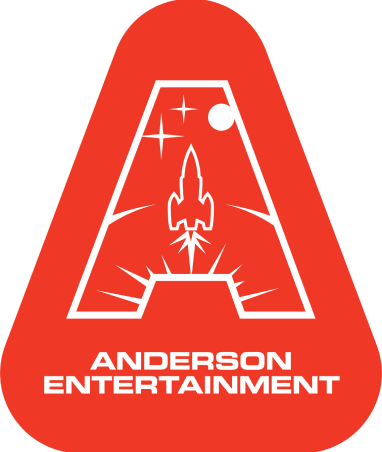Super Space Theatre - The Gerry Anderson compilation movies
Share
Share
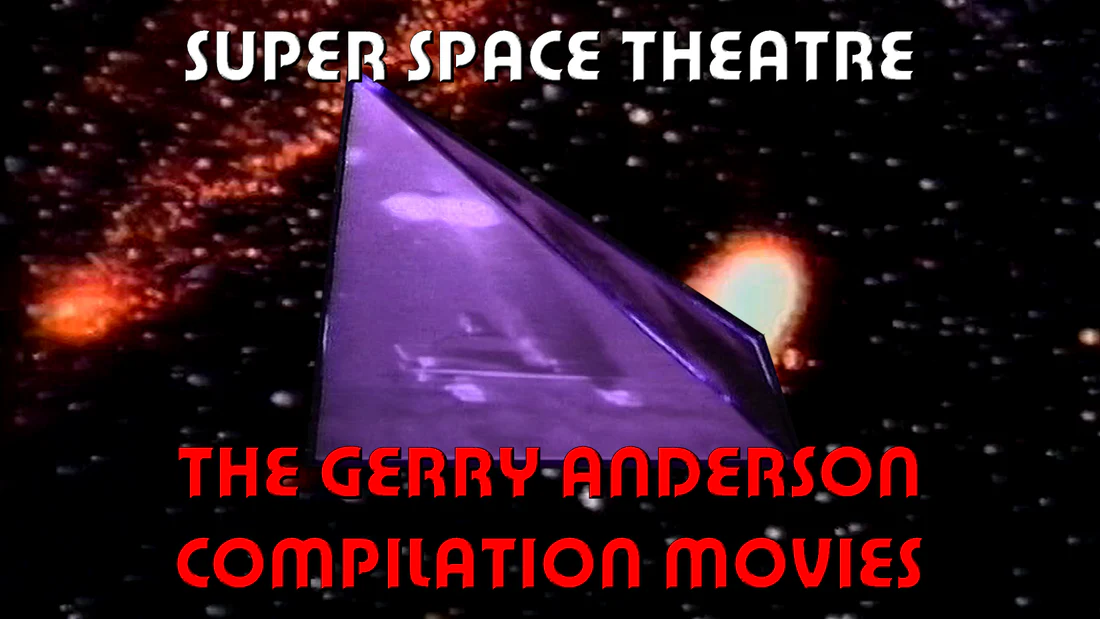
 If you were a Gerry Anderson fan growing up in the 1980s or 1990s then chances are you were familiar with a range of videotapes that claimed to be feature film versions of various Gerry Anderson shows, with such exciting titles as Thunderbirds in Outer Space and Revenge of the Mysterons from Mars, yet when you put them into the VCR just turned out to be several episodes bolted together with new opening and closing title sequences. These features were collectively known as Super Space Theatre, and their origins actually stretched back to the 1960s.
If you were a Gerry Anderson fan growing up in the 1980s or 1990s then chances are you were familiar with a range of videotapes that claimed to be feature film versions of various Gerry Anderson shows, with such exciting titles as Thunderbirds in Outer Space and Revenge of the Mysterons from Mars, yet when you put them into the VCR just turned out to be several episodes bolted together with new opening and closing title sequences. These features were collectively known as Super Space Theatre, and their origins actually stretched back to the 1960s.
ITC themselves produced several such compilation movies during the 1960s, taking two-part episodes of shows like The Saint, The Baron and Man in a Suitcase and releasing them overseas as films. This idea was nothing new even at the time but so far, except for some Italian UFO and Space:1999 compilations, the Gerry Anderson shows had yet to be subjected to this treatment.
Then in 1977 a little movie named Star Wars arrived in cinemas, and suddenly science fiction was big business again. All over the world studios rushed to cobble together sci-fi movies as quicky and cheaply as possible, and ITC were no exception. Desperate to find anything with which they could cash in on this sudden explosion of interest in science fiction they naturally turned to Space:1999, which had been cancelled the previous year. Homing in on the show’s only two-part story, The Bringers of Wonder, they decided to edit the two episodes together and release it as a feature film, with a new title – 1978’s Destination Moonbase Alpha.
https://www.youtube.com/watch?v=DNkKCFaqib8Only minimal changes were made to the episodes; the recap at the start of part 2 was cut for obvious reasons, as was the episode's final scene. The existing opening and closing titles sequences were dropped in favor of new titles that now set the series in the year 2100, featured a narrated Star Wars-esque opening text crawl, a new opening theme composed by Mike Vickers, and a closing song from Oliver Onions.
 Patrick Allen leads the turtleneck-wearing members of Alien Attack's Lunar Commission.
Patrick Allen leads the turtleneck-wearing members of Alien Attack's Lunar Commission.The following year another Space:1999 compilation, Alien Attack, combined two episodes from the show’s first season; the series opener, Breakaway, with a later episode, War Games. Again the show’s opening and closing titles were dropped, and the movie opens with the same narrator (Marc Smith, who had also voiced The Beta Cloud) explaining the premise of the series; no Star Wars-style opening text crawl this time, but just as much cheesy inaccurate dialogue and again new opening and closing titles sequences. The 2100 date was also retained, but the most interesting aspect of this film is that several brand new scenes were filmed featuring Patrick Allen and the rest of the International Lunar Commission (operating from what seems to be a hotel conference room) reacting to the events of Breakaway as they unfolded. These scenes, which were writer Dennis Spooner's final contribution to the Gerry Anderson universe, are basically pointless and only appear to have been shot to explain why Commissioner Simmonds disappears for the second half of the film, but Patrick Allen’s inclusion in the Space:1999 universe feels so very right.
https://www.youtube.com/watch?v=lLP3UD5gbsE Tom Chantrell's poster artwork for Destination Moonbase Alpha.
Tom Chantrell's poster artwork for Destination Moonbase Alpha.Evidently inspired by what their counterparts in London were doing, ITC in America also began looking at the Gerry Anderson back catalogue to investigate ways the shows could be exploited for a 1980s audience. Rather than simply repeat these fifteen-year old programmes the decision was made to follow in the footsteps of the two Space:1999 films by producing more compilation features; not for cinema release, but for the same American cable and satellite stations that the two 1999 compilations had eventually made their way to. Robert Mandell of ITC’s New York office called in Starlog writer and fellow Anderson fan David Hirsch to act as a consultant on the project, and together they sat through hundreds of hours of material looking for suitable episodes that could be fused together to become movies.
https://www.youtube.com/watch?v=ZQ_zEExa7ew First out of the gate was 1980's Invasion:UFO, and straight away it was clear that Mandell and Hirsch had big plans for the project. This movie doesn’t just combine two fifty-minute episodes, it actually includes footage from six, crammed into one ninety-minute feature. The result actually works rather well, cutting a lot of the filler from the show's slower opening episodes, but took so long to make that it was clear the process had to be simplified going forward. From here on the films would comprise either two fifty-minute episodes, or four of twenty-five-minutes – with up to ten minutes of material having to be culled from each feature in order to fit a ninety-minute running time. Each would also be edited on videotape, lending the new compilations more colorful yet noticeably softer picture quality than the two Space:1999 features produced in London.
First out of the gate was 1980's Invasion:UFO, and straight away it was clear that Mandell and Hirsch had big plans for the project. This movie doesn’t just combine two fifty-minute episodes, it actually includes footage from six, crammed into one ninety-minute feature. The result actually works rather well, cutting a lot of the filler from the show's slower opening episodes, but took so long to make that it was clear the process had to be simplified going forward. From here on the films would comprise either two fifty-minute episodes, or four of twenty-five-minutes – with up to ten minutes of material having to be culled from each feature in order to fit a ninety-minute running time. Each would also be edited on videotape, lending the new compilations more colorful yet noticeably softer picture quality than the two Space:1999 features produced in London.
 Most of the compilations that followed would spotlight the color Supermarionation series, and the edits made to the original episodes slowly became more significant – and more controversial. Along with more elaborate opening and closing titles sequences (often featuring in-joke references to other shows entirely) came extra music from the Barry Gray archive, applied so freely that even scenes of characters sitting around talking were now accompanied by pulse-pounding chase music. Missiles throughout the Stingray and Captain Scarlet compilations would be replaced by lasers, new captions would be overlaid to clearly establish locations, and existing material would be re-edited into entirely new sequences in order to either make the films feel more cohesive (such as re-voicing Space Warp’s Captain Duro as ‘Vader’ and retconning he and his crew into being previous victims of Mentor) or to provide a pre-titles prologue.
Most of the compilations that followed would spotlight the color Supermarionation series, and the edits made to the original episodes slowly became more significant – and more controversial. Along with more elaborate opening and closing titles sequences (often featuring in-joke references to other shows entirely) came extra music from the Barry Gray archive, applied so freely that even scenes of characters sitting around talking were now accompanied by pulse-pounding chase music. Missiles throughout the Stingray and Captain Scarlet compilations would be replaced by lasers, new captions would be overlaid to clearly establish locations, and existing material would be re-edited into entirely new sequences in order to either make the films feel more cohesive (such as re-voicing Space Warp’s Captain Duro as ‘Vader’ and retconning he and his crew into being previous victims of Mentor) or to provide a pre-titles prologue.
These prologues included an American Voice of the Mysterons reporting to the “Mysteron Imperial Council” in Revenge of the Mysterons from Mars, and Titan complaining to fish god Teufel about his constant defeats at the hands of the Stingray crew at the beginning of Invaders from the Deep - until the big fish finally loses patience and induces what appears to be some kind of hallucination in order to show his master that he isn’t the only underwater baddy who is bad at his job.
https://www.youtube.com/watch?v=4JcAqyUblvUBy far the biggest and most controversial change however came at the conclusion of Attack on Cloudbase, the big finale to Captain Scarlet vs the Mysterons. As Cloudbase falls from the sky, the "it was only a dream" ending is replaced with this;
https://www.youtube.com/watch?v=xRg8g_WCGUk The Mysteron space pyramid is certainly a major revision to the original ending of Attack on Cloudbase… but - American Mysteron voice aside - is it really any more of a let-down than the original? To end an episode of a television show with the words “it was only a dream” is insulting enough, but to end a ‘film’ that way is inviting your audience to put their foot through the screen. While the new ending would (and obviously should) never replace the original, it makes for a far more satisfying viewing experience to end on the note that the Spectrum team really did experience the events of Attack on Cloudbase. One possible inspiration for this new sequence may have been the ending of Space:1999’s War Games (featured in Alien Attack), as the American Voice of the Mysterons repeats several lines verbatim from the conclusion of that story.
The Mysteron space pyramid is certainly a major revision to the original ending of Attack on Cloudbase… but - American Mysteron voice aside - is it really any more of a let-down than the original? To end an episode of a television show with the words “it was only a dream” is insulting enough, but to end a ‘film’ that way is inviting your audience to put their foot through the screen. While the new ending would (and obviously should) never replace the original, it makes for a far more satisfying viewing experience to end on the note that the Spectrum team really did experience the events of Attack on Cloudbase. One possible inspiration for this new sequence may have been the ending of Space:1999’s War Games (featured in Alien Attack), as the American Voice of the Mysterons repeats several lines verbatim from the conclusion of that story.
One last Super Space Theatre compilation followed in 1983, but this time it was nothing to do with any Gerry Anderson series. Legend of the Champions combined the episodes The Beginning and The Interrogation from 1968 ITC action series The Champions, and did so in a very interesting way. Rather than just bolt one episode onto another and call it a day the episodes are actually woven together, as the flashbacks Craig Stirling experiences during The Interrogation are now extended with additional material from The Beginning as both stories unfold side by side. They even went to the trouble of shooting a new opening title sequence, and the result is a feature that honestly feels like a proper Champions movie.
By the end of the project, the Super Space Theatre range had produced twelve films;
1980
 The Incredible Voyage of Stingray (Stingray, Plant of Doom, Countdown, and The Master Plan)
The Incredible Voyage of Stingray (Stingray, Plant of Doom, Countdown, and The Master Plan) Thunderbirds to the Rescue (Trapped in the Sky, and Operation Crash-Dive)
Thunderbirds to the Rescue (Trapped in the Sky, and Operation Crash-Dive) Invasion:UFO (Identified, Computer Affair, Reflections in the Water, plus short sections from Confetti Check A-OK, E.S.P., and The Man Who Came Back)
Invasion:UFO (Identified, Computer Affair, Reflections in the Water, plus short sections from Confetti Check A-OK, E.S.P., and The Man Who Came Back)1981
 Invaders from the Deep (Hostages of the Deep, Emergency Marineville, The Big Gun, and Deep Heat)
Invaders from the Deep (Hostages of the Deep, Emergency Marineville, The Big Gun, and Deep Heat) Thunderbirds in Outer Space (Sun Probe and Ricochet)
Thunderbirds in Outer Space (Sun Probe and Ricochet) Captain Scarlet vs the Mysterons (The Mysterons, Winged Assassin, Seek and Destroy, and Attack on Cloudbase)
Captain Scarlet vs the Mysterons (The Mysterons, Winged Assassin, Seek and Destroy, and Attack on Cloudbase) Revenge of the Mysterons from Mars (Shadow of Fear, Lunarville 7, Crater 101, and Dangerous Rendezvous)
Revenge of the Mysterons from Mars (Shadow of Fear, Lunarville 7, Crater 101, and Dangerous Rendezvous) The Amazing Adventures of Joe 90 (The Most Special Agent, Splashdown, Attack of the Tiger, and Arctic Adventure)
The Amazing Adventures of Joe 90 (The Most Special Agent, Splashdown, Attack of the Tiger, and Arctic Adventure)1982
 Countdown to Disaster (Terror in New York City and Atlantic Inferno)
Countdown to Disaster (Terror in New York City and Atlantic Inferno) Journey through the Black Sun (Collision Course and Black Sun)
Journey through the Black Sun (Collision Course and Black Sun) Cosmic Princess (The Metamorph and Space Warp)
Cosmic Princess (The Metamorph and Space Warp)1983
 Legend of the Champions (The Beginning and The Interrogation)
Legend of the Champions (The Beginning and The Interrogation)The final total of Super Space Theatre films would rise to fourteen with the addition of Destination Moonbase Alpha and Alien Attack to the package, which was then marketed to cable and satellite stations across the U.S.A., but it seems they were largely used as late night filler and didn’t kick-start the hoped-for new wave of American interest in the Gerry Anderson series - although three would later appear during the first season of Mystery Science Theater 3000 in 1988.
The compilations soon enjoyed greater success on various home video labels around the world throughout the 1980s, with the most notorious example being when Alien Attack and Journey through the Black Sun were released in the U.S. as part of the Sybil Danning Adventure Video range in 1986. This was a range of 26 action adventure titles presented by B-movie queen Sybil Danning, who later admitted she was only hired to host these tapes to add a bit of sex appeal to titles that it was felt wouldn’t otherwise sell. Reportedly, the Landaus saw one of her introductions at a convention and actually took legal action to get the tapes pulled.
https://www.youtube.com/watch?v=EeTZ2oto6GIThe mental image of Martin Landau watching Sybil Danning introducing one of his old shows while dressed in whatever the hell she's not wearing in that clip is is certainly entertaining, but it also shows how much respect he still had for the show more than a decade on from the end of its production. “I’ll wait here for you to beam back!” Oh no, honey, that’s okay, really. You go put some clothes on before you catch cold.
https://www.youtube.com/watch?v=_NGTlpvsYQY 1990s ITC promotional material for Journey Through the Black Sun.
1990s ITC promotional material for Journey Through the Black Sun.In the U.K., the compilations first appeared on the Precision Video label, then later Channel 5 Video and Polygram Video, and sold very well. Unfortunately, this also led to a rather unfortunate situation; as the years rolled by and the Gerry Anderson shows continued to sell well on VHS, they were re-released several times. Whenever this happened the new range would always begin with the movies; the original episodes they were produced from were never included. In other words, it became impossible to purchase key episodes from many of the major Gerry Anderson series in their original uncut format; whether by accident or design, the only way you could get them now was as part of the movies. In the case of Invasion:UFO this was particularly unfortunate as two episodes, Confetti Check A-OK and The Man Who Came Back, each only appeared in the compilation for a few minutes which essentially rendered them non-existent in most UFO VHS ranges. Somehow E.S.P., which Invasion:UFO also borrowed a clip from, slipped the net and got its own release, but all the other episodes used in the compilations could now only be seen in reruns.
In 2000 a digitally remastered Thunderbirds arrived on DVD and VHS, alongside a BBC2 repeat run and a whole slew of new merchandise and interest in the show. Thunderbirds mania had returned once again. Stingray, Captain Scarlet, Joe 90, UFO and Space:1999 all arrived on DVD over the next few years, looking better than ever before, and this time every single episode was unreleased intact and uncut. This meant that after being the bedrock of the Gerry Anderson home video range for fifteen years, the Super Space Theatre compilations were suddenly now a relic of the past, never to be seen again.
At least, not in their original forms.
Despite their new DVD releases in the early 2000s Carlton Video (then the rights holders of the ITC series) were still offering the compilation films to international broadcasters, and appear to have cut together new edits of the films around the same time in order to make them more appealing. These new edits replaced as much of the films as possible with better (but variable) quality sections of the actual episodes, and only retained the more heavily edited sections of the original films (such as the new opening and closing titles, ‘Vader’, the Mysteron space pyramid etc). While the new edits are generally easier on the eye than the original films they were often assembled rather clumsily, sometimes inserting commercial break points that didn’t exist before and even including the same scene twice during the new version of Journey Through the Black Sun. It also means that the extra music and the laser effects, two of the defining features of the films, have been lost almost entirely.
 The repeated shot in the Journey through the Black Sun re-edit highlights the difference in picture quality between the original compilations (left), and the footage used in the newer re-edits (right).
The repeated shot in the Journey through the Black Sun re-edit highlights the difference in picture quality between the original compilations (left), and the footage used in the newer re-edits (right).Several of the new edits have been released in recent years (the Thunderbirds and Space:1999 compilations on DVD in Italy, and The Amazing Adventures of Joe 90 on the recent Network blu-ray set), but have disappointed those hoping for a release of the original cuts. A restored 35mm print of Destination Moonbase Alpha received a limited edition blu-ray release in the U.K., while the original cut of Legend of the Champions is also available on iTunes, but otherwise the original cuts of the Super Space Theatre movies can only be found on the old VHS and laser disc editions.
As time marches on and more Gerry Anderson shows make the jump to high definition it seems increasingly unlikely that we’ll ever see the original edits of these movies get another complete UK release, but some fans still hold out hope for a DVD boxset containing the complete Super Space Theatre collection. Although derided by some both at the time of their production and in subsequent decades, these compilations still have a place in the hearts of those who grew up with them. They may seem somewhat irrelevant now that we have all the individual episodes to watch whenever we wish, many in superb high definition...but sometimes, for a burst of real 1980s Gerry Anderson nostalgia, nothing beats the world of Super Space Theatre - with all its flashy laser effects, American Voice of the Mysterons, constant chase music, and neon credits sequences played over the same looped space shots.
The Mysteron Imperial Council wouldn't have it any other way.
https://www.youtube.com/watch?v=_A2d3rO8kgQ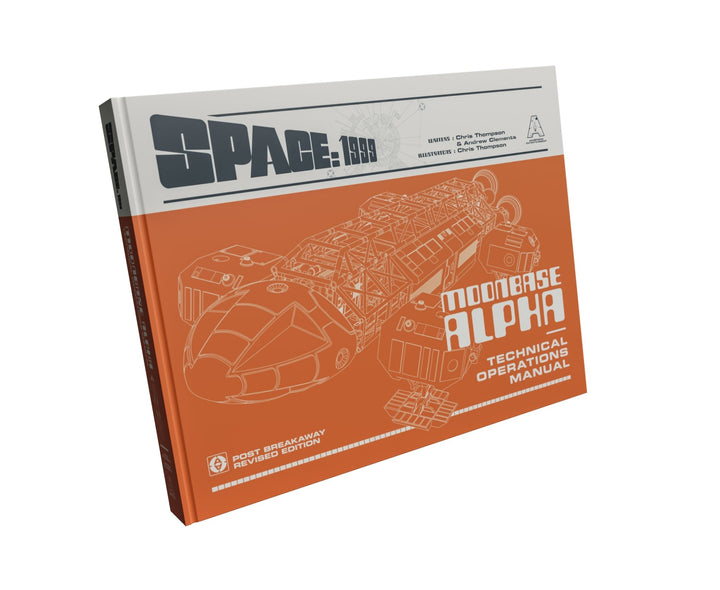
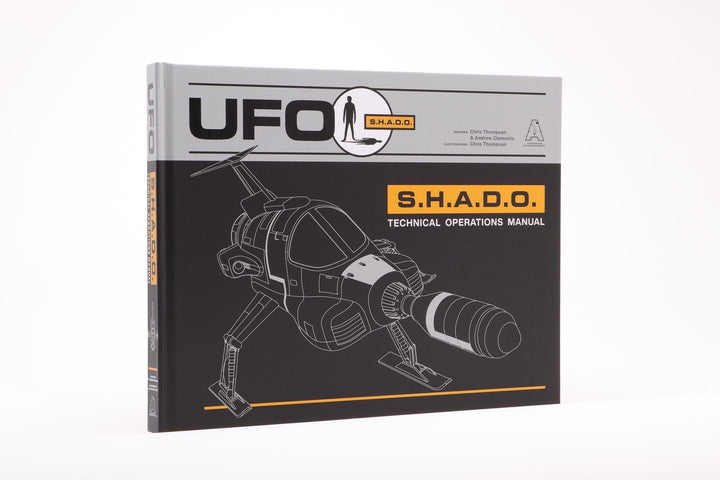
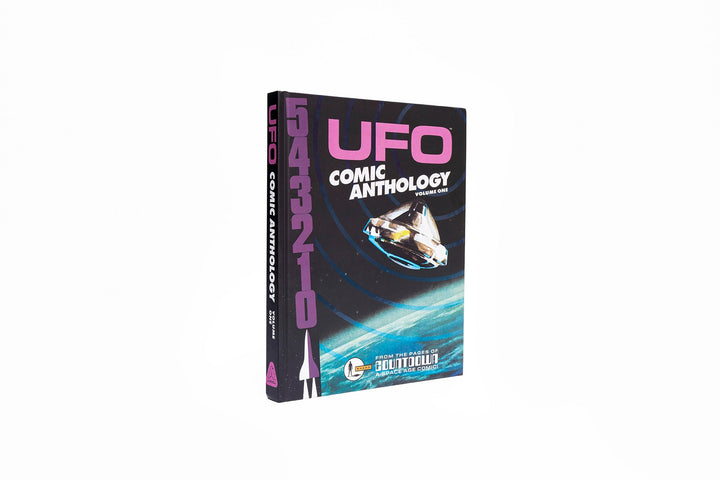
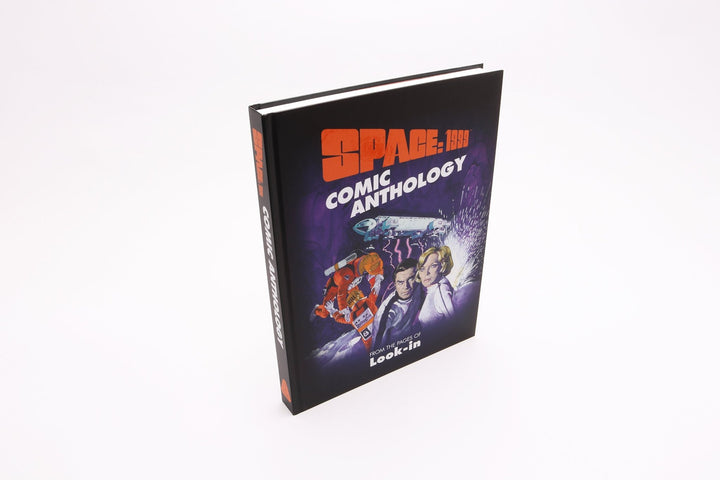
![Fireball XL5 World Space Patrol Technical Operations Manual [HARDCOVER BOOK] - The Gerry Anderson Store](http://gerryanderson.com/cdn/shop/files/fireball-xl5-world-space-patrol-technical-operations-manual-hardcover-book-290050.jpg?v=1711729272&width=720)
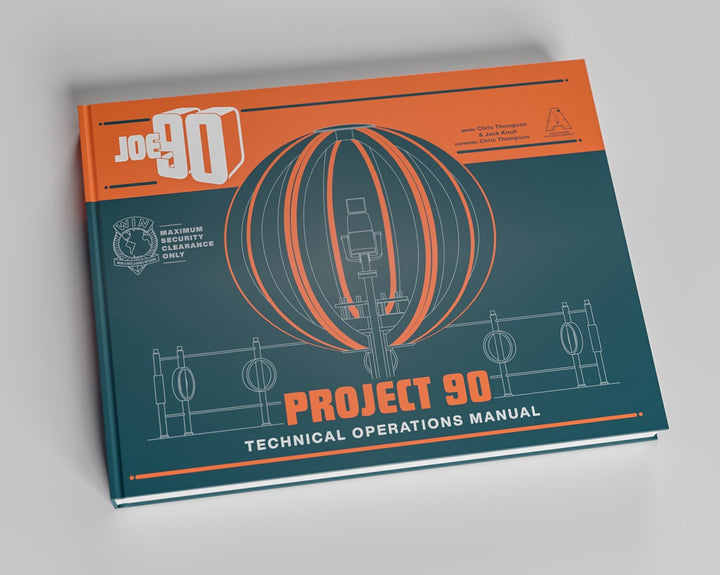


![Space: 1999 and UFO Book Bundle - Signed Limited Editions [HARDCOVER NOVELS] - The Gerry Anderson Store](http://gerryanderson.com/cdn/shop/files/space-1999-and-ufo-book-bundle-signed-limited-editions-hardcover-novels-589446.jpg?v=1718836845&width=720)
![Stingray Comic Anthology Volume Two – Battle Lines [HARDCOVER] - The Gerry Anderson Store](http://gerryanderson.com/cdn/shop/files/stingray-comic-anthology-volume-two-battle-lines-hardcover-803972.jpg?v=1733503079&width=720)
![Stingray WASP Technical Operations Manual Special Limited Edition [HARDCOVER BOOK] - The Gerry Anderson Store](http://gerryanderson.com/cdn/shop/files/stingray-wasp-technical-operations-manual-special-limited-edition-hardcover-book-991914.jpg?v=1732922875&width=720)
![Stingray: The Titanican Stratagem – Signed Limited Edition [HARDCOVER NOVEL] - The Gerry Anderson Store](http://gerryanderson.com/cdn/shop/files/stingray-the-titanican-stratagem-signed-limited-edition-hardcover-novel-129251.jpg?v=1730437132&width=720)



